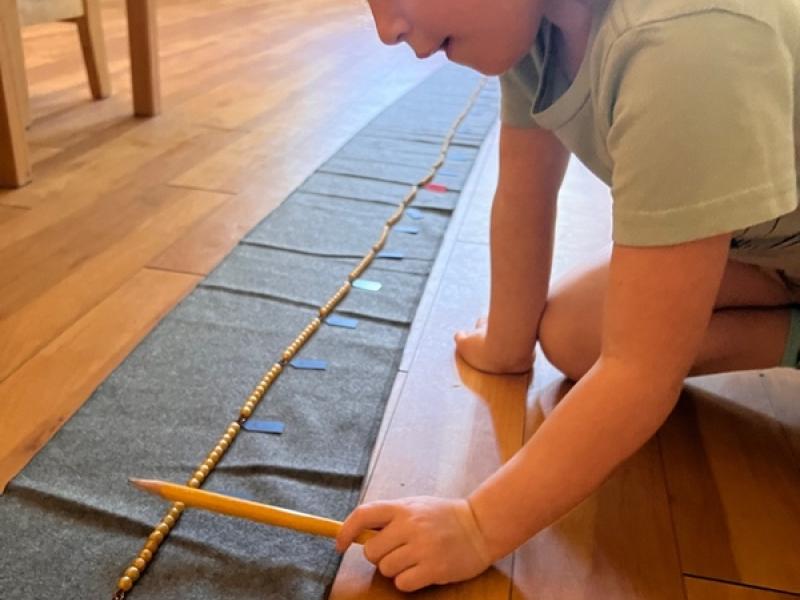Embarking on a journey of fostering children's holistic development, Montessori principles provide a roadmap for nurturing their unique potential through hands-on learning, individualized attention, and a respectful, prepared environment. Here are key Montessori principles that you may find beneficial:
- Repetition - Invite your child to repeat an activity as much as they want. This leads to mastery and, of course, confidence.
- Movement - This is the way your children develop. Encourage movement during the day at all times.
- Choice - Children learn best when they have chosen an activity. If your child struggles to choose an activity, you can give a limited choice, such as, "Would you like to do this or this?"
- Observation - Take time to watch and observe what your child is doing. You can see what interests them, what brings them joy, where they need more help or repetition, what distracts them, what they concentrate on, and so much more! You will be surprised by what you discover. Observing children of varying ages and interests profoundly inspires me. I can see children are competent to do things for themselves, to witness what activities will offer challenging rewards to them and what brings them joy. Also, I can now see how far they have come. This is very rewarding.
Based on research, here are a few findings things that may be useful to you:
- Research shows that relaxed and happy children learn much more quickly than stressed children.
- Much of what your young children learn can be picked up from you automatically in how you go about everyday tasks in life.
- Children learn best when they do so at their own pace - learning and mastering the everyday things in life gives children confidence, and confident children are ready to embrace challenges. (I observe this in many children every day in class).
- Children need to make their discoveries - a parent learning how to give just enough help but not too much is an art form. Let children experience the joyfulness of discovering things, and telling you all about them is an experience that cannot be lost.
- Children learn when they are interested in it - it may help to choose the right time when they are ready for something new and challenging; things that need practicing can be done at any time. Be prepared to stop a game if they are unwilling to play or become overly frustrated.
- Children learn by doing - the more active and involved they are, the more likely they become engaged and interested.
- Getting that balance right can be challenging at any time. Observe your child more to discover their involvement in an activity.
- Children need encouragement and recognition rather than praise or treats. Focusing on extrinsic rewards takes away from the intrinsic value of learning. Use phrases that recognize effort "That took a long time; you must be happy to have completed it." that wasn't easy, but you kept going." Using phrases like this takes consistent practice from adults, and soon you will feel the difference within your child. Don't forget to give this information to the Grandparents!
- Mistakes are a learning opportunity. When children make a mistake, it shows that they are encountering new ideas, actions, skills, and thoughts. It is essential to cultivate a positive attitude toward these 'mistakes' and help your child feel it is okay if they make a mistake and can try again. You haven't squashed their interest in the activity.
By incorporating these key Montessori principles into your daily interactions and home environment, you can cultivate a nurturing space that fosters your child's holistic development and empowers them to reach their full potential.
—Dragonfly Teacher


